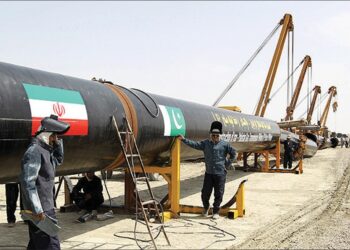A senior Belarusian official said last Wednesday his government was “extremely dissatisfied” with the work of a car-making joint venture with Iran, and warned his government was seeking Chinese partners instead, the state Belapan news agency reported.
Belarus is often described as the last dictatorship in Europe. Its president, Alexander Luka- shenko, and 156 of his associates are banned from traveling to the EU.
shenko, and 156 of his associates are banned from traveling to the EU.
Deputy Prime Minister Vladimir Semashko described his anger with Iran’s auto operation. “After five years of work, we’ve only managed to build 1,000 automobiles. And we only managed to sell them because I pressured the Interior Ministry and other [Belarussian] government agencies into buying them.”
Semashko sharply criticized the Samand, a four-door car produced under license in Belarus in cooperation with the Iran Khodro Industrial Group (IKCO), Iran’s largest car-builder. Iran Khodro has been touting its initiatives to build cars in other countries as the key to its future.
“The price [for the Samand] is high and the model is outdated,” Semashko said at a meeting of a government council on manufacturing.
IKCO executives have refused to invest in the project as promised, or to offer technology to produce a more modern and lower-cost vehicle, he said.
“The Iranian side was given the task of installing assembly lines for welding and painting,” he said. “The joint venture board members met to discuss this less than a month ago, but nothing came of it.”
Belarus is now in talks with China’s Cherry and First Automobile Works to replace IKCO as partners in the joint venture. “I think we will most likely invite Chinese firms,” Semashko said in a speech to parliament. “We already have some progress in talks about this.”
IKCO and Yunison, a Minsk-based automobile manufacturer, founded the joint venture in 2006 planning to sell the Samand in Belarus and neighboring countries.
It was to have been IKCO’s main production facility in the former Soviet Union with planned sales by 2010 of up to 60,000 cars.
A key goal of the project was to help Iran and Belarus, both of which are subject to international economic sanctions for their human rights records, to develop a modern automotive industry.
The Samand, one of Iran’s widely-used vehicles, is based on the frame of a Peugeot 405, which was designed by the French manufacturer in 1987.
The Yunison-produced Samand currently retails for $15,000 in Minsk automotive stores. Most Belarusian car-buyers looking for transportation in that price range prefer a used car imported from Germany, Belapan said.

















